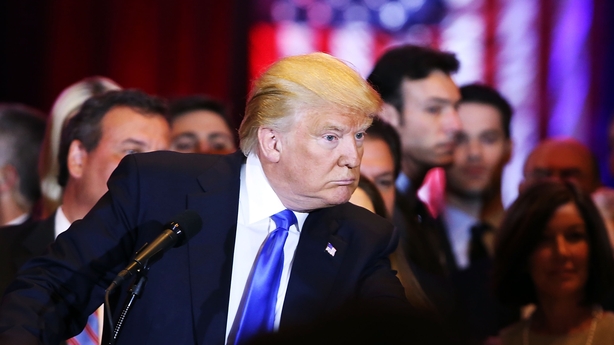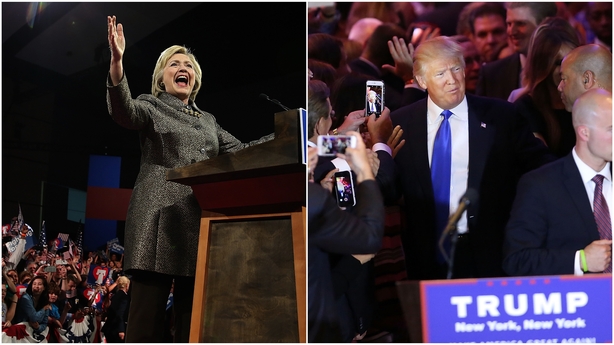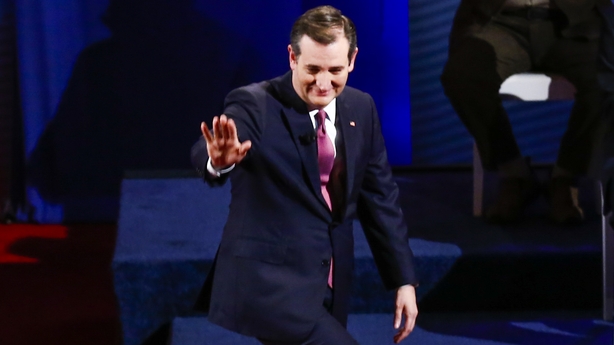Ohio Governor John Kasich has announced he is suspending his US presidential campaign, leaving billionaire Donald Trump as the last Republican candidate and the party's presumptive nominee.
"As I suspend my campaign today, I have renewed faith - deeper faith - that the Lord will show me the way forward," Mr Kasich told supporters in Ohio.
Mr Trump, a former reality television star, who has never held public office, won a commanding victory in Indiana's primary last night, forcing his main rival, US Senator Ted Cruz, to drop out of the race.
Mr Trump's win cleared the way him to prepare for a likely match-up in the 8 November general election against former Secretary of State Hillary Clinton.
The Democratic front-runner lost the Indiana primary to US Senator Bernie Sanders, but remains on course to become her party's nominee.
Mr Trump said tonight that he could make some cabinet announcements before the party's July convention in Cleveland, Fox News Channel reported.
"I like the idea of doing some of this before we go into Cleveland. Yes, I could do that and I think it would be well-received," it quoted Mr Trump as saying in an interview.
Earlier, South Carolina Governor Nikki Haley, a Republican who has been mentioned as a possible vice presidential pick, said she is not interested in the post but will support the party's eventual nominee.
"While I am flattered to be mentioned and proud of what that says about the great things going on in South Carolina, my plate is full and I am not interested in serving as vice president," Ms Haley, a popular Indian-American governor, said in a statement.

Mr Trump's immediate challenge is to mend deep fissures within the Republican Party, easing tensions with party loyalists who are appalled by his bombastic, bullying style, his denigrating comments about women and his proposals to build a wall on the border with Mexico and deport 11 million illegal immigrants.
But in a series of morning television interviews, Mr Trump, 69, made clear he would not forget some wounds from a tumultuous primary campaign in which many establishment Republicans rejected him and spawned Stop Trump and Never Trump movements.
"I am confident that I can unite much of it, some of it I don't want," Mr Trump said on NBC's Today show.
"Honestly, there are some people I really don't want. People will be voting for me. They're not voting for the party."
Since launching his White House bid last summer as a long-shot amid a crowded field that included governors, former governors and senators, the real estate magnate repeatedly defied predictions that his campaign would implode.
He prevailed over rivals he derided as "grown politicians," despite making provocative statements along the way that drew sometimes furious criticism from many in the party but fed his anti-establishment appeal.
Mr Trump also directed fire at Mrs Clinton, telling MSNBC, "She is a disaster, and she will be a disaster as president."
With his nomination all but assured, Mr Trump is looking for a running mate.
He said on ABC he would choose a Republican, most likely an elected official with political experience.
"I'm considering a lot of people," Mr Trump told Fox News.
Mr Trump's victory in Indiana and the withdrawal of both Mr Cruz and Mr Kaisch means he now has a clear path to be formally nominated as the Republican candidate at the party convention in July, rather than battling for the prize at a contested convention.
Republican National Committee Chairman Reince Priebus called Mr Trump the party's presumptive nominee in a tweet and said: "We all need to unite and focus" on defeating Mrs Clinton.
Support for Mr Trump among Republicans nationally jumped in recent weeks to the highest level of the primary campaign, according to Reuters/Ipsos polling.
A recent poll found Mr Trump with the support of 53% of Republican participants, well above Mr Cruz at 25%. Mr Kasich had 16%.
 In a potential general election match-up, however, Mrs Clinton led Mr Trump by about ten percentage points among likely voters.
In a potential general election match-up, however, Mrs Clinton led Mr Trump by about ten percentage points among likely voters.
The poll included 623 Democrats and 556 Republicans and had a credibility interval of five percentage points.
As the primary returns flowed, Mr Cruz announced he had ended his campaign in Indianapolis. The senator from Texas, 45, sounding beaten but defiant, said he no longer saw a viable path to the nomination.
"We gave it everything we got. But the voters chose another path, and so with a heavy heart, but with boundless optimism for the long-term future of our nation, we are suspending our campaign," said Mr Cruz, who is from the party's conservative Tea Party movement.
 Mr Cruz's exit came as a surprise, and many Republicans who had denounced Trump were grappling with what to do next.
Mr Cruz's exit came as a surprise, and many Republicans who had denounced Trump were grappling with what to do next.
Reuters/Ipsos polling in April found Mr Cruz supporters split on whom to support if their candidate quit.
Lanhee Chen, who had advised former Republican candidate Marco Rubio, last night floated the possibility of a third-party candidate.
"Tonight's outcome raises seriousness & urgency of discussions about third-party alternative; how real it is depends on who steps up to run," he tweeted.
Other prominent Republicans said they would support Mr Trump.
"It's binary now. It's Trump or Clinton, my vote's for Trump," former Louisiana Governor Bobby Jindal, who dropped his own White House bid in November, said on Fox News.
